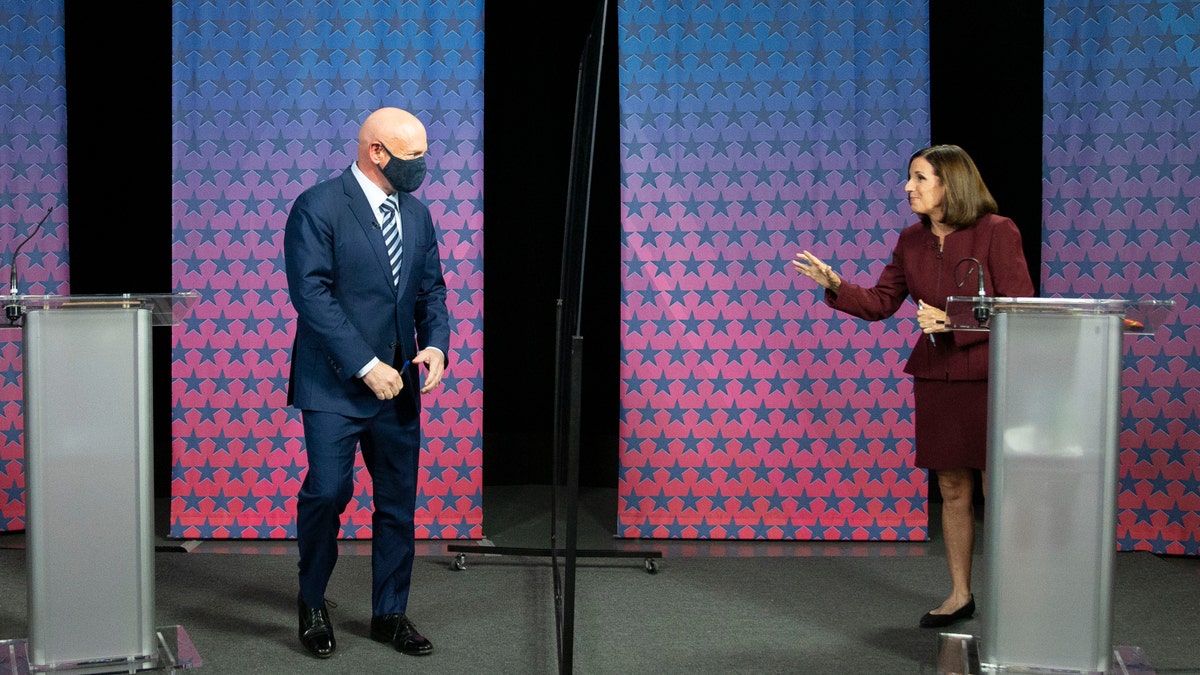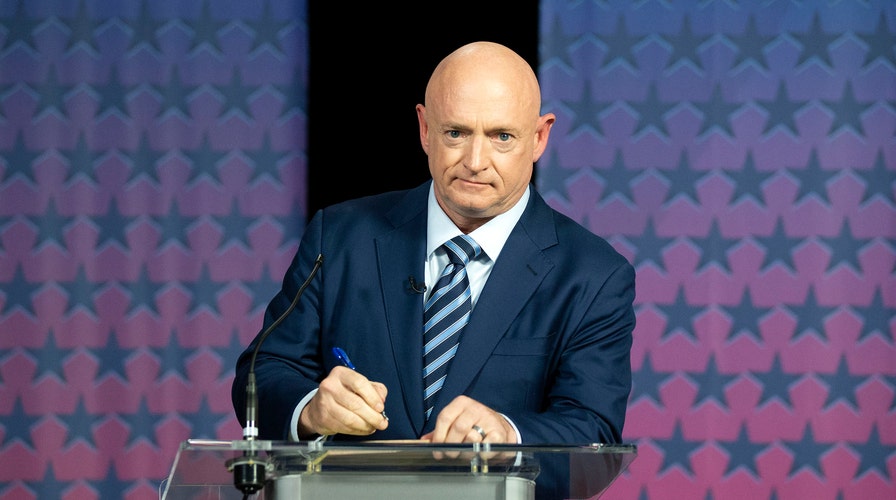Fox News Flash top headlines for October 7
Fox News Flash top headlines are here. Check out what's clicking on Foxnews.com.
The Second Amendment was a big component of Arizona's Senate debate on Tuesday night.
The issue split the two candidates -- both veterans -- on widely discussed reform measures such as Red Flag Laws and background checks.
Democrat Mark Kelly, a former NASA astronaut and the son of two police officers, is the husband to former Arizona Rep. Gabrielle Giffords. Giffords served in the U.S. House of Representatives from 2007 to 2012, when she resigned due to a severe brain injury suffered during a 2011 shooting near the southeastern city of Tuscon.
MARTHA MCSALLY, MARK KELLY SPAR OVER AMY CONEY BARRETT VOTE IN ARIZONA DEBATE
Kelly said gun safety is a personal issue for him and that he'd "never forget" what his wife went through.
He also represented himself as a gun owner and supporter of Second Amendment rights.
"Our rights and traditions are so important. [The] Second Amendment is so important," he stated. "But we can never let a bunch of kids in [their] classroom, you know, get killed and think there's nothing we can do about it."
Incumbent GOP Sen. Martha McSally, the U.S. Air Force's first female fighter pilot to fly in combat and command a fighter squadron in combat, warned that Democrats would come after Arizonans' Second Amendment rights if "given power."
She also butted heads with The Arizona Register's Yvonne Wingett Sanchez over previous statements regarding Red Flag Laws, which would permit law enforcement or family members to petition a state court to order the temporary removal of firearms from a person who may present a danger to others or themselves.
"Senator McSally, after mass shootings last year, you said you would be open to considering Red Flag gun laws to try to keep weapons away from dangerous people. Is that the case and what specifically would that look like today?" Sanchez asked.
5 THINGS TO WATCH IN FIRST VICE PRESIDENTIAL DEBATE TONIGHT BETWEEN PENCE, HARRIS
"What I said was we need to do everything we can in order to stop these tragedies from happening," McSally replied. "And I've been leading on this in the House and the Senate."
McSally referenced a background check system that "often isn't working as it is" and conceded that some shooters were not in the system when they should have been.
She promoted the 2017 Fix NICS Act, which applies penalties to government agencies for not reporting to the National Instant Criminal Background Check System, though noting that more needs to be done on mental health care.
However, she denied voicing any support for Red Flag Laws, adding that Democrats Kelly has supported are "coming after" constitutional rights.

Democratic challenger Mark Kelly, left, arrives to debate U.S. Sen. Martha McSally, R-Ariz., right, at the Walter Cronkite School of Journalism in Phoenix, Ariz., Tuesday, Oct. 6, 2020. (Rob Schumacher/The Arizona Republic via AP, Pool)
In 2019, McSally said she was open to reviewing and discussing gun reform following multiple mass shootings, including the potential implementation of Red Flag Laws.
However, seven years before, McSally had said that restrictions on gun sales "at gun shows or other places, [are] just absolutely unconstitutional."
MCSALLY TRADES JABS WITH KELLY AHEAD OF CRITICAL ARIZONA SENATE DEBATE
"Senator McSally, in the past, has said background checks are unconstitutional," Kelly noted. "Well, most guns are sold with a background check right now, but there [are] these giant loopholes that you could drive a truck through. And, here in Arizona, a majority of Arizonans support background checks for all gun sales and Red Flag Laws, and a couple of other things."
Kelly and his wife's political action committee, Americans for Responsible Solutions, had used that argument in 2012 as well.
"Are you against background checks for all gun sales?" Ted Simons, managing editor of Arizona Horizons, asked McSally.
"I've been leading to strengthen the [background check] system that we have while ensuring that Arizonan's Second Amendment rights are protected," McSally said.
According to the Office of Arizona's Attorney General, current gun laws allow any person who is at least 18 years old to carry a firearm openly, and those 21 or over to carry a concealed weapon with a permit.
Arizona was the second state after Alaska to enact "Constitutional Carry" laws. It still maintains a “Shall Issue” policy for reciprocity reasons. Permits are issued to residents and non-residents with one of the requirements being that a firearms safety course must be passed.
CLICK HERE FOR THE FOX NEWS APP
Newly released data from the FBI's 2019 uniform crime report showed violent and property crimes decreased in the Copper State last year.
However, in August, AZ Family reported homicides in the capital city of Phoenix rose 25.7% from 2019.














































